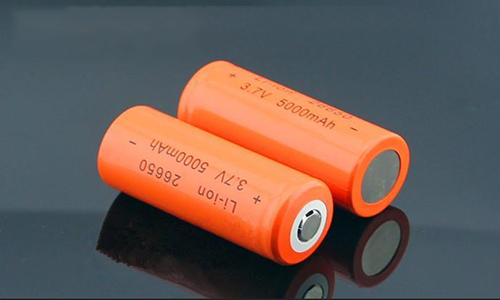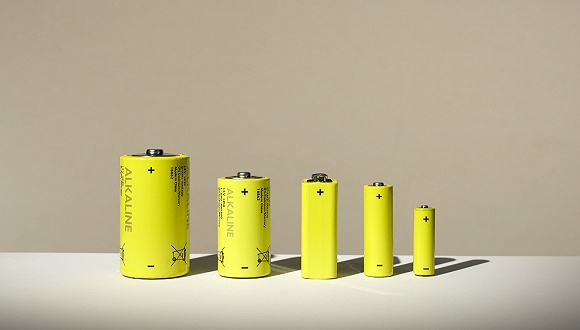Where Can I Recycle Lithium Batteries?
Nov 29, 2019 Pageview:1299
Introduction
Batteries are the future. We are seeing them grow into one of the main sources of energy for our electronic appliances more and more. This is a fact that is hard to argue with. Seeing as the electric car is already a reality and we live by the batteries of our phones. Given the importance of batteries today it is only natural that we would worry. With what happens to them when they stop serving their purpose. Our generation is forced to become more aware of the environment. That is because of the damage that our species has done to it over the last few hundreds of years. We are now coming to terms with the fact that this planet needs to be taken care of. There are many efforts being made in this subject and recycling is a very important aspect of those efforts. We are going to talk today about how to properly handle and recycle lithium batteries. Let us get right into it.
What are batteries made of?
There are a few different solutions when it comes to holding and delivering an electrical charge. This task is accomplished with a few different types of batteries in the consumer world.
Lithium batteries are very common, they have been around for a very long time in different forms and they have become quite good at their job. The problem is that to achieve their task they contain chemicals that are not so great to dump into the ground. That is the case with lithium and other chemicals found inside of lithium batteries. Lithium batteries are made out of a few different materials, the main one being, of course, lithium. We are going to talk about how to dispose of these.
Can I throw away lithium batteries?
The short answer is that: Yes, you can. The truth is that this short answer needs a bit of clarification, as the process is not as simple as throwing away a piece of paper.
You cannot (or at least should not) throw away your batteries in a regular trash can.
The proper way to dispose of these batteries is to have them reach a proper processing plant for them. They will get handled there in the correct way. That ensures that they are recycled and that the harmful chemicals are not dumped. This last part is very important.
How much of a lithium battery can be recycled?
This will depend a lot on the method used for recycling them. Up to 96% of the materials used in a battery can be salvaged for recycling. That is with the latest advancements in recycling techniques for batteries. It is a detail that is somewhat out of your hands, though. If you decide to take your batteries to a waste center you will have little to no impact. The method used in recycling them is up to them. All you could do is ask and take them somewhere else if you feel that the answer is not satisfactory. If you find a battery waste bin the matter is out of your hands completely.
The good news is that even if a small part of the battery is separated for reuse, the remaining waste will still be handled properly. That should take a load off of your shoulders.
How to treat batteries once they are depleted
Once you are getting ready to dispose of your batteries you should take some precautions so that you can dispose of them safely. Leakage is a very real concern when it comes to lithium batteries, which means that you should try to cut the risks of it as much as you can. To do this many experts recommend that you tape over the ends of a battery. This also serves to isolate whatever leftover charge may still be in them. You can just use regular duct tape to achieve this, it is a small detail that could go a long way towards improving the handling of your batteries.
Where can I dispose of lithium batteries?
Luckily things have gone a long way in this regard. You will have a few options to choose from here, take a look.
1. Find an electronic waste bin near you. These are getting more and more common, and that is great news. We use batteries a lot and that means that we have to throw a lot of them away. The good thing about dumping them in special containers is that they will get exactly where they need to get, and in the way that is suitable for them. Leakage is a real concern when it comes to batteries, and you could take a few precautions about them not leaking on the way. These containers are designed to handle leaks, though. That means that if you take them to one that problem will be taken care of for you.
2. There may be specialized centers in your area. If that is the case you should not hesitate to take them there if you can. It will ensure that the batteries end up treated in the way they must be treated to prevent damage to the environment.
Conclusion
Recycling and processing batteries is not a trivial matter. It makes a big impact on the environment and all of us should take it very seriously. The time it takes for a battery to return to the ground is a lot. Also, the damage that it leaves behind as it does so for hundreds of years. If we look at those factors, we reach the conclusion that there is a real problem here, and that it must be addressed. It falls on us to make sure that the things that make our lives so much better are not the ones responsible for the further destruction of this planet.
- Prev Article: Where Can I Dispose Of Lithium-ion Batteries?
- Next Article: High Capacity Lithium ion Battery Manufacturer,Recommend Battery
Leave Message
Hottest Categories
-
Hottest Industry News
-
Latest Industry News













